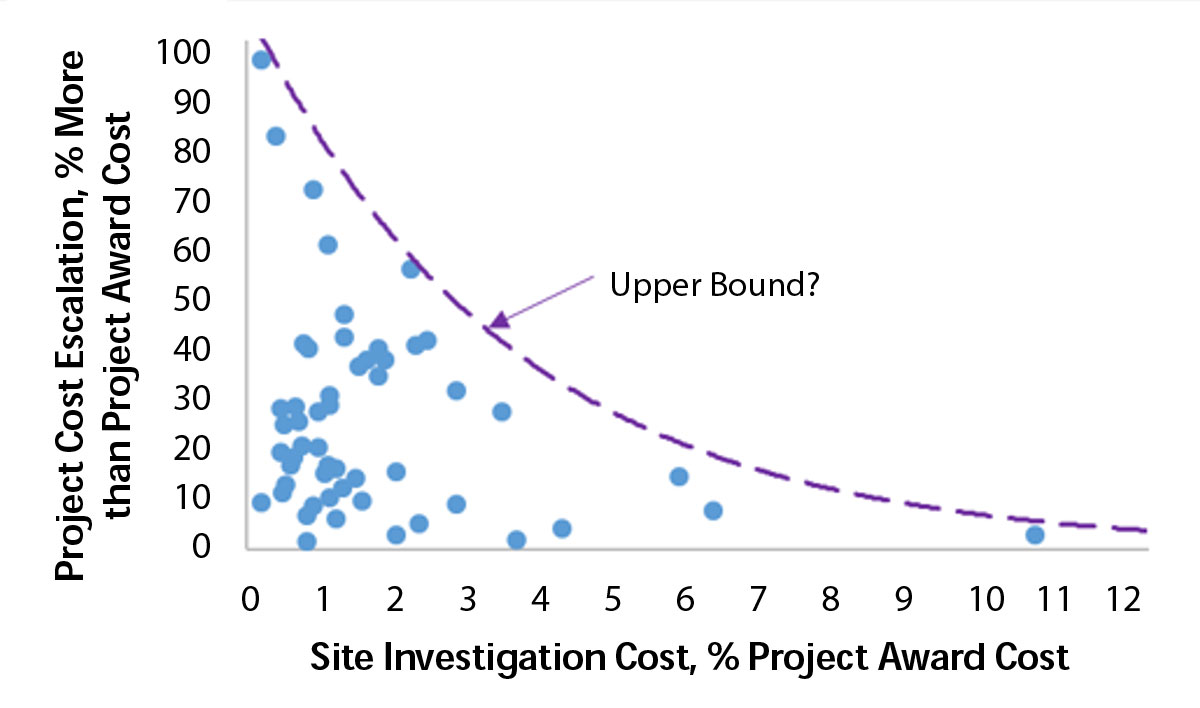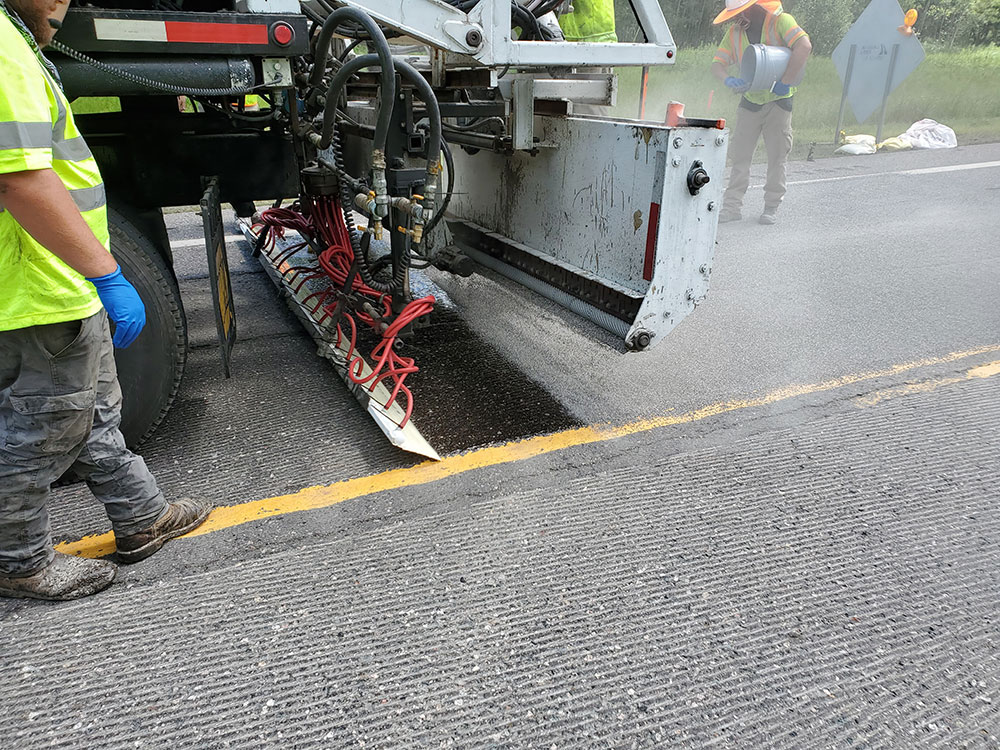October 1, 2020
Innovation of the Month:
Advanced Geotechnical Methods in Exploration (A-GaME)
Did you know up to 50 percent of major infrastructure projects experience schedule or cost impacts because of geotechnical issues?
Advanced geotechnical methods in exploration (A-GaME) is an expanded approach to site investigation that can reduce risk, optimize site characterization, enhance design reliability, and reduce geo-construction delays and cost escalations. Effective site characterization is critical for recognizing potential problems that may affect design and construction and for ensuring safe, well-performing, and cost-effective projects. A-GaME offers proven, but underused methodologies and practices that transportation agencies can adopt with confidence based on years of successful application that can dramatically reduce the data gap and provide better data to inform decisions.
Recommended A-GaME techniques include: cone penetration testing (CPT), seismic and electrical methods, measurement while drilling (MWD), and using optical and acoustic televiewers. Using these methods can improve an agency's knowledge of subsurface site conditions, providing time and cost savings through a well-scoped investigation.
Transportation projects typically spend around 1 to 3 percent of their total construction cost on geotechnical subsurface investigations. The data in the graphic below from construction projects in multiple sectors shows the relative likelihood of project cost escalations in relation to how much is spent on geotechnical investigation. Imagine if that one to three percent cost was more wisely spent by targeting reoccurring problems that we can anticipate. Imagine if another percent or two was invested when subsurface conditions were known to be riskier. That is what the A-GaME is about.
Removing Geotechnical Uncertainties: A Good Investment

States have been busy bringing their A-GaME! Montana is making great progress adapting a drill rig for MWD implementation. Several states including Arkansas, Wisconsin, and Alaska are seeing value on a variety of projects using exploration geophysics. Michigan, Vermont, and West Virginia are applying CPT to select projects to improve site characterization and Ohio will be using televiewers to gain insight on an emergency landslide project this month.
Resources
The FHWA A-GaME team has a wealth of content to provide virtual peer exchanges, webinars, and web-based training opportunities. A new calendar of events is in development to provide a one-stop location to link to ten upcoming webinars on A-GaME topics. These webinars will take place from November through March. Stay tuned to future editions of EDC News for more information.
We also invite you to watch our spotlight video and orientation webinar to learn more about A-GaME and the techniques it recommends to improve subsurface exploration. Additionally, you can read the Transportation Research Board's National Cooperative Highway Research Program synthesis, Influence of Geotechnical Investigation and Subsurface Conditions on Claims, Change Orders, and Overruns. The A-GaME team will also conduct several presentations at the Deep Foundation Institute's 45th annual conference, which will be conducted online.
If you have more questions about these proven, innovative geotechnical methods, please contact Ben Rivers of the FHWA Resource Center or Silas Nichols of the FHWA Office of Infrastructure.
Project Bundling Initiative Launches Webinar Series
Advanced project bundling consists of planning and awarding similar projects to leverage all economies of scale throughout project delivery, while also achieving important program goals.
Project bundling isn't new, so why are the techniques promoted in this round of EDC referred to as "advanced?" A new project bundling webinar series answers this question and many more by highlighting national best practices. Join numerous agencies from 23 states that are implementing project bundling to optimize resources, save delivery time, and address system performance goals while keeping crucial transportation assets in good repair.
The project bundling webinars will be held the third Wednesday of each month at 2:00 ET through February 17, 2021. Topics include how to bundle projects, moving beyond bridges, bundling for local agencies, key characteristics of lead agencies, making the business case for project bundling, and overcoming hurdles. Register now for the October 21 webinar.
If you'd like to learn more about project bundling, please contact Romeo Garcia or David Unkefer, project bundling team co-leads.
Minnesota County Installs High-Friction Surface Treatment
In recognition of the inaugural Rural Road Safety Awareness Week, we are highlighting one of several proven rural safety countermeasures that can be used on local roads: high friction surface treatment (HFST).
HFST is a high-quality aggregate that is applied to existing pavement with a polymer resin binder to restore and/or maintain friction at areas with high potential for crashes. This technique is a proven solution for significantly increasing friction for spot applications.

While developing its local road safety plan (LRSP), St. Louis County, MN, conducted a proactive or systemic analysis to identify locations with a higher risk of roadway departures. Of the 1,414 curves on the County system, 34 were identified that had 4 or more risk factors. These risk factors included curve radius, traffic volume, presence of an intersection or a visual trap as well as crash history. Ten of these curves with good pavement condition were selected for HFST installation.
The HFST was installed recently with the project funded through the Highway Safety Improvement Program (HSIP) and State aid funding. The cost to install the HFST was $32 per square yard, including milling, pavement markings, mobilization and traffic control. The County was able to install one curve per day, or two per day if the curves were in close proximity.
If you would like to learn more about HFST and ways to bring it to your area, contact Cate Satterfield or Dick Albin with the Focus on Reducing Rural Roadway Departures team.
About EDC
Every Day Counts, a State-based program of the Federal Highway Administration’s Center for Accelerating Innovation, works with State, local, and private sector partners to encourage the adoption of proven technologies and innovations to shorten and enhance project delivery.


